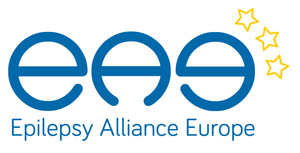The EpiCARE group, with coordinator Prof J Helen Cross, Great Ormond Street Hospital for Children (GOSH), has been recognised as a European Reference Network (ERN) on rare and complex epilepsies. This was in response to a call from the EU, which closed in June 2016.
Dissemination of activities will be core to the network, and will be the responsibility of the coordinator and Epilepsy Alliance Europe.
The project’s website can be reached here: https://epi-care.eu/

WHY AN EPILEPSY ERN?
In 2013, Epilepsy Alliance Europe held a workshop in the European Parliament in Brussels to highlight the need for a European-wide study on prevalence rates of epilepsy, using appropriate and standarised methodology.
Traditionally treatments have been targeted at the seizures with little understanding of the underlying cause; advances in structural brain imaging, as well as molecular and metabolic diagnostics, have determined an increasing number of causes resulting in the description of in excess of 130 rare diseases. With an understanding of underlying cause, treatments can be more targeted.
The relative prevalence of each disease means a coordinated approach is required across key centres of expertise, with the development of e-tools to enable complex diagnostic and therapeutic interventions in a wider number of patients across Europe. Only then can we increase the possibility for new treatments that can be integrated into the clinical care pathways.
The EpiCARE network will develop and deliver highly-specialised diagnostics and care to improve interventions and outcome in individuals with rare and complex epilepsies.
E-pilepsy Pilot Network
One such example has been the advances in clinical assessment, neuroimaging and neurophysiology increasing the number of individuals proceeding to resective surgery, with resultant cure from otherwise drug resistant epilepsy. The pilot ERN e-pilepsy (EU EAHC 534055, 2014, Ryvlin & Cross, 3 years) has increased the awareness and availability of epilepsy surgery across Europe through the utilisation of e-health, and further demonstrated the absolute need for a clinical network devoted to the rare and complex epilepsies.
Through EpiCARE it will expand on this work to increase availability of specialist diagnostics and health care to the wider group of rare and complex epilepsies, incorporating E-pilepsy as one of several therapeutic networks.
Network Goals
- Full access and utilisation of presurgical evaluation and epilepsy surgery;
- An increase in diagnosis of rare causes of the epilepsies;
- Enhancement of identification of patients with treatable rare causes of the epilepsies
- Increase access to specialized care for rare causes:
- To foster research on innovative causal treatments in rare and complex epilepsies.
Attaining Network Goals
With a strategy of collaborative working, sharing of expertise and access to advanced diagnostics EpiCARE anticipates an increased number of individuals with refractory epilepsy to have an underlying diagnosis as a cause for the epilepsy.
By collecting information about where such patients exist, the ERN will be able to collate information on clinical presentation and evolution across the life span, constitute cohorts of these rare conditions and advance the development of clinical trials, utilising innovative trial design for small select numbers of patients.
EpiCARE will also continue to increase awareness and accessibility of epilepsy surgery for carefully selected individuals through a continuation of the core network, the successful pilot ERN E-pilepsy. E-pilepsy has proven the ability to build a sustainable pilot network using e-tools and multidisciplinary team discussions. This will continue through the future EpiCARE network, increasing the number of resultant seizure free patients in the next five years.
By networking centres with expertise in diagnosis of rare and potentially treatable causes of epilepsies, and the use of highly technological investigative tools and diagnostic investigation, a collaborative effort will be made at collecting and developing guidelines for diagnosis and treatment of rare and complex epilepsies within the first three years of the EpiCARE network.
Collecting common outcomes through registries of specific diseases will enhance both experience and knowledge base as to optimal management in these rare conditions.
The participation of network members in virtual discussion utilising an existing IT platform, and the integration of expertise in teaching programmes, will also enhance the likely diagnosis of individuals in EU member and non-member states. This is specifically relevant to reducing the gap of knowledge on rare epilepsies in adult patients.
Reducing The Need For Cross Border Travel
Ultimately, such exchange of data will enhance local delivery of care and minimise the need for patients to travel to other centres, or indeed utilise the cross border directives, facilitating optimised care for all. This will enable a wider number of individuals to access better and safer healthcare care within the next five years, thus impacting positively on the quality of life of the patients and their families and also having a direct economic impact at family and societal levels.

Members of the Network (Stage One)
- Great Ormond Street Hospital for Children, London, UK
- University College London Hospitals, UK
- Queen Elizabeth University Hospitals Campus, Glasgow, UK
- Oxford University Hospitals, UK
- University Hospital Gasthuisberg KU, Leuven, Belgium
- Motol University Hospital, Czech Republic
- St Anne’s University Hospital, Czech Republic
- Kuopio University Hospital KUH, Finland
- CHRU Lille Epilepsy Unit, France
- GHE-HCL (Hospices Civils de Lyon), France
- Hôpital Enfant Malade, Necker, Paris, France
- Dept of Epileptology, University Hospital Bonn, Germany
- Epilepsy Center, University Hospital Freiburg, Germany
- RCCS lnst of Neurological Sciences of Bologna (INSB), Italy
- Fondazione lstituto Neurologico Nazionale Casimiro Mondino, Pavia, Italy
- Ospedale Pediatrico Bambino Gesà, Rome, Italy
- Azienda Ospedaliero-Universitaria A. Meyer, UO Neurologia Pediatrica, Florence, Italy
- Fondazione IRCCS Istituto Neurologico Carlo Besta, Milan, Italy
- University Medical Center Utrecht (Brain Center Rudolf Magnus), The Netherlands
- The Children’s Memorial Health Institute, Warsaw, Poland
- Centro Hospitalar e Universitario de Coimbra, Portugal
- Centro de Referencia de Epilepsias Refractrias, Hosp de Santa Maria, Lisbon, Portugal
- Centro Hospitalar do Porto, Portugal
- Alexandru Obregia Clinical Hospital, Bucharest, Romania
- Hospital Sant Joan de Deu Hospital Clinic, Barcelona, Spain
- Hospital de Mar-Pare de Salut Mar, Spain
- Hospital Universitario y Politecnico La Fe, Valencia, Spain
- Sahlgrenska University Hospital, Gothenburg, Sweden

